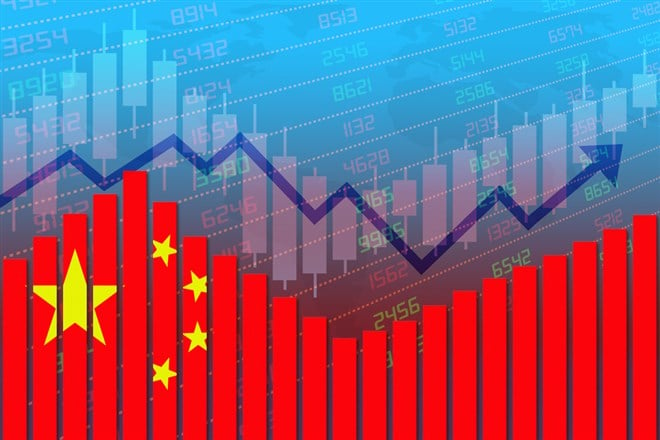
Michael Burry, made famous by the 2015 movie "The Big Short" is a widely known investor whose main focus is - according to a quote by the book and movie - "... find value wherever it can be found."
Well, looks like our Burry has found value in China of all places despite current negative sentiment/media toward the region with all the spy balloons flying around the world. The question is which beaten down firms did he buy and why?
Starting with the giant Alibaba Group (NYSE: BABA), As of December 31st, Burry had acquired 50,000 American Depositary Shares (ADRs) of the company that is based in the e-commerce industry, totaling USD 4.4 million. While it is next to impossible to catch the exact buying price through 13-F filings, this purchase could have been between the 58-96 range.
JD.com (NASDAQ: JD) takes the second place in Burry's China buying spree, this firm also happens to be in the E-commerce space and had been likely discounted alongside BABA. This position has been reported to be of 75,000 ADRs adding up to a hefty 4.2 million USD. Not bad for Christmas shopping.
But wait there's more...
David Tepper has made his fortune and reputation by finding mispricing opportunities in securities of any market, being a high-risk investor in opportunities such as the LATAM Argentina crisis and the Russian Bond defaults that crushed trading firm Long Term Capital Management (LTCM), Tepper knows how to pick the extremes of market valuations and sentiment. This time he chose China.
Tepper's purchase in Alibaba Group (NYSE: BABA) is a shadow of Dr. Burry's, acquiring an additional 10,000 ADRs, however the key word here is ADDITIONAL ADRs. Tepper's previous position was of 90,000 ADRs thus bringing his current position total to 100,000 ADRs. Not that this is a competition, but now we know who has more skin in the game. If history is any guidance, both of these titans are looking at a significant mispricing from the underlying value of these firms in the midst of negative temporary sentiment in China.
What is the appeal for Chinese tech?
Judging by the investing history of the above investors, having amassed giant fortunes and loyal followings through their teachings and successful deals. While we cannot know the exact motivations behind the quoted purchases, we can use a bit of common sense to reverse engineer some of the key catalysts behind even looking at Chinese tech.
- These investors are known for going against the trend and overall market sentiment, so it is no surprise that they have decided to enter/add to these firms in the middle of geopolitical tensions between China and the US. Where talking heads such as Jim Cramer see these firms as "impossible to recommend", value investors see them as opportunities served on a silver platter.
- There are several tailwinds that not a lot of people are looking at when thinking of Chinese tech firms, namely the reopening story post-COVID, the government announced stimulus and spending which will trickle down to the consumer sector in due time and slowly rising inflation back to healthy levels.
- Spreads and multiples between the above firms and US tech baskets such as the Invesco QQQ Trust (NASDAQ: QQQ) have reached unprecedented levels, signaling that investors can acquire similar quality cash flows and returns on invested capital (ROIC) metrics for significantly lower valuations. Charlie Munger himself has been quoted stating his sentiment toward China, even comparing BYD to Tesla in an "almost ridiculous" dominant stance.
Earnings Season
Earnings are coming up for the Chinese giants, with various analysts already showing excitement by raising some of their price targets on them. The markets believe that the holiday season, reopening and further tailwinds in stimulus within the economy can bring a pleasant surprise to 2022 year-end figures and a strong momentum for the 1Q'23 results.
As mentioned above, healthier inflation levels and the trickle down effect from stimulus are signaling a stronger consumer population in China thus supporting the increasing sentiment perceived by street analysts. Hopefully Burry and Tepper have it figured out before earnings come out that a beat is in the works.
Do the technicals align with valuations?
It is always wise to compare the sanity of certain technical indicators and patterns against the rationality of valuations in order to develop a view on price action.
In the case of Alibaba, we are seeing:
- A weekly Fibonacci retracement to the "Golden Ratio" of 78%-61.8%.
- Steamed upside momentum in the RSIs, MACDs and MoneyFlowIndex indicators coming from oversold areas.
- Stochastics lowering and Volatility compressing have caused the recent stock rally to slow down in order to "catch its breath" providing a swift buying range before it possibly picks up steam again.
- This recent rally has brought Alibaba's multiples along to a more normalized level, and it makes sense to slow down before we find ourselves in "overvalued" territory. 5-year average Free Cash Flow multiples went from 10x to current 18x, right in a "let's wait and see" sweet spot, where earnings announcements could lower this multiple enough to allow investors to keep pushing forward.
For JD.com the apple story does not fall too far from the proverbial tree. It is safe to say that after reacquired sentiment in the industry and region, markets are taking a break to "wait and see" how figures come out for the first quarter and assess whether there is still any room left for a second rally.




